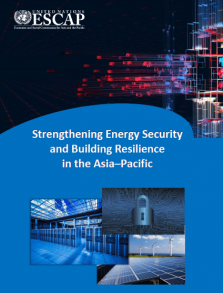
The study is to examine the new energy security dimensions that are emerging with the advent of the energy transition and to include the impacts of the worldwide COVID-19 pandemic on global energy markets and energy security especially in the Asia-Pacific region.
It analyses and summarizes the global and regional energy megatrends in the Asia-Pacific region until 2020 in the light of the global climate policies and the Sustainable Development Goals (SDGs). It also addresses the short-term impacts of the global pandemic on the energy markets and developments, abut also consider the implications of a longer-term recovery from COVID-19 on global and regional energy security.
In addition, it analyses the future challenges of the electrification of the transport sector and industry sectors, including the rapidly rising electricity, the electrification of the transport sector and the perspectives for batteries and the importance for energy security in both sectors.
The study addresses the future challenges for the SDGs in a post-pandemic world and to which extent global and regional energy policies need to change to achieve the SDGs and the 1.5°C target of the Paris Agreement, including the opportunities for the development of hydrogen as a major instrument for worldwide decarbonization.
It examines how to balance between short-term economic recovery programmes with long-term energy security and climate protection objectives. It particularly discusses those competing objectives in the light of the new dimensions of energy security and the long-term sustainable development objectives. Finally, the study identifies and recommendes viable policy options for the Asia-Pacific member States.


